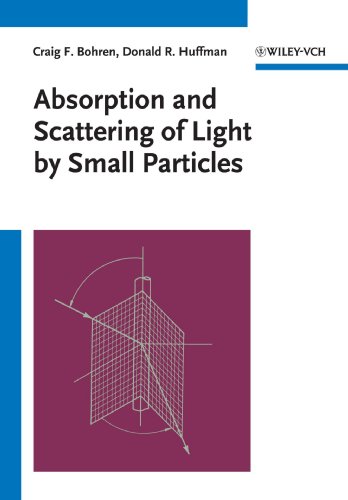Absorption and scattering of light by small particles epub
Par battle glenn le mardi, août 23 2016, 00:12 - Lien permanent
Absorption and scattering of light by small particles by Craig F. Bohren, Donald R. Huffman


Download eBook
Absorption and scattering of light by small particles Craig F. Bohren, Donald R. Huffman ebook
Page: 533
Format: djvu
ISBN: 047105772X, 9780471057727
Publisher: John Wiley & Sons
As the number of aerosols increase, the water within a cloud spreads out over more particles. We study the light scattering by a dimer of metallic nanoparticles. It is non-irritating and non-allergenic, therefore it is claimed to be very suitable for Because of its small particles, the nano size Zinc Oxide does not scatter light and therefore does not appear white. Absorption and Scattering of Light by Small Particles (Wiley Science Paperback Series) Craig F. Potential methods to quantify total particles, such as Dynamic Light Scattering (DLS), Asymmetric Field-Flow Fractionation Using Multi- Angle Light Scattering Detection (AFFFF-MALS); Electrospray Differential Mobility (ES-DMA) and a flow cytometry method (using the Virus Counter) will be discussed for their Kapteyn et al. Show a response of 100 times higher when detecting with a fluorescence (FLD) wavelength (λ = 335nm) compared to UV absorption at a wavelength of 215nm. .if it does exist, logic would stand to reason that you cant spend billions of years absorbing photons and still be undetectable in the EM spectrum.first I have heard of DM being tied to positrons though. Combining this with the absorption and scattering coefficients of water, we see that the short wavelength light that is preferentially scattered back to our eyes by water will be absorbed by the small suspended particles. When used as an ingredient in sunscreen, Zinc Oxide, a mineral powder, is claimed to sit on the skin's surface scattering and absorbing ultraviolet rays without being absorbed into the skin. Download Absorption and Scattering of Light by Small Particles (Wiley Science Paperback Series) pdf free. We show that the quasi-static approximation fails when the scattering becomes predominant over absorption.